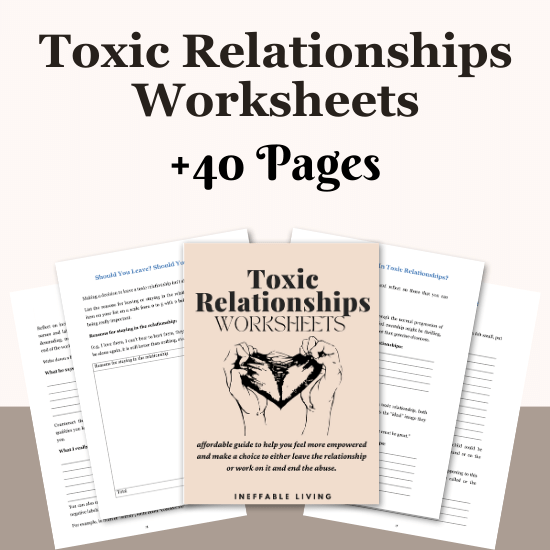In this post, you’re going to find out how a narcissist reacts when they can’t control you.
Who Is The Narcissist?
Narcissism is a complex and multifaceted construct that exists on a spectrum, ranging from healthy self-confidence to pathological narcissistic traits and Narcissistic Personality Disorder (NPD).
In general terms, a narcissist is an individual who demonstrates an inflated sense of self-importance, a deep need for excessive admiration, and a lack of empathy for others.
They often have a grandiose view of themselves and seek out admiration and validation from others to maintain their self-esteem.
However, it’s important to understand that not all individuals who exhibit narcissistic traits or behaviors necessarily meet the diagnostic criteria for NPD.
Narcissistic Personality Disorder, as defined in the Diagnostic and Statistical Manual of Mental Disorders (DSM-5), involves a pervasive pattern of grandiosity, need for admiration, and lack of empathy, beginning in early adulthood and present in a variety of contexts. Individuals with NPD may display a range of symptoms, including:
1. Grandiosity: A grandiose sense of self-importance, often accompanied by fantasies of unlimited success, power, brilliance, beauty, or ideal love.
2. Need for Admiration: An excessive need for admiration and validation from others, often seeking attention and approval to maintain their self-esteem.
3. Lack of Empathy: Difficulty recognizing or understanding the emotions and needs of others, coupled with a tendency to disregard or belittle the feelings of others.
4. Interpersonal Exploitation: A pattern of taking advantage of others to achieve their own goals, often without empathy or regard for the well-being of those they exploit.
5. Sense of Entitlement: An expectation of special treatment and favorable treatment from others, as well as an unreasonable expectation of compliance with their expectations.
Related: Top 10 Signs A Narcissist Wants Your Attention
Why Does a Narcissist Need to Control You?
The need for control exhibited by individuals with narcissistic traits or Narcissistic Personality Disorder (NPD) often stems from underlying insecurities, fear of abandonment, and a fragile sense of self-esteem.
Here are some potential reasons why a narcissist may seek to control others:
1. Maintaining Self-Esteem: Narcissists often rely heavily on external validation and admiration to prop up their fragile self-esteem. By exerting control over others, they seek to ensure that their self-image remains intact and that their needs and desires take precedence.
2. Fear of Abandonment: Underlying a narcissist’s need for control is often a deep-seated fear of being abandoned or rejected. By controlling those around them, they attempt to mitigate this fear and create a sense of security in their relationships.
3. Sense of Superiority: Narcissists often harbor a grandiose sense of their own importance and believe that they know what is best for others. This can lead them to exert control in an attempt to assert their perceived superiority and maintain power dynamics in their favor.
4. Insecurity and Vulnerability: Paradoxically, behind the facade of confidence and superiority, narcissists often grapple with profound feelings of insecurity and vulnerability. Controlling others may serve as a way to manage their own internal turmoil and bolster their shaky self-image.
5. Emotional Regulation: For some narcissists, controlling others provides a means of regulating their own emotions and managing their anxiety. By dictating the behavior and reactions of those around them, they aim to create a sense of predictability and stability in their environment.
Related: How To Stop Attracting Narcissists? Top 9 Tips
How Does A Narcissist React When They Can’t Control You?
When a narcissist encounters resistance or an inability to control someone, their reactions can be influenced by a range of factors, including their specific traits, the context of the situation, and the nature of their relationship with the person they are attempting to control.
Here are some potential reactions that a narcissist may display when they are unable to exert the level of control they desire:
1. Anger and Frustration
One common reaction of a narcissist when they can’t control someone is a display of anger and frustration.
This can manifest as verbal outbursts, aggressive behavior, or expressions of intense displeasure.
The narcissist may feel a sense of entitlement to control others, and when this control is thwarted, it can trigger feelings of rage and indignation.
2. Manipulative Tactics
When faced with resistance, a narcissist may escalate their use of manipulative tactics in an attempt to regain control.
This can include guilt-tripping, gaslighting, or attempting to create a sense of insecurity or uncertainty in the other person.
By employing these manipulative strategies, the narcissist seeks to undermine the autonomy and confidence of the individual they are trying to control.
Related: How To Get Revenge On A Narcissist? (In Relationships & At Work)
3. Withdrawal and Silent Treatment
In some cases, a narcissist may respond to a lack of control by withdrawing emotionally or giving the silent treatment.
This passive-aggressive behavior is designed to elicit a reaction from the other person, creating a sense of anxiety or distress through the withholding of attention and affection.
4. Intensified Charm Offensive
Alternatively, a narcissist may respond to resistance by intensifying their charm offensive.
They may seek to manipulate through flattery, seduction, or displays of affection in an effort to regain control and reassert their influence over the other person.
5. Projection and Blame-Shifting
When confronted with their inability to control someone, a narcissist may resort to projection and blame-shifting.
They may attribute their own feelings of inadequacy or distress to the other person, painting them as the source of the problem and deflecting responsibility for the situation.
Related: Top 12 Traits of a Narcissist
6. Seeking Allies and Manipulating Social Dynamics
If a narcissist is unable to control an individual on their own, they may attempt to recruit allies or manipulate social dynamics to exert indirect influence.
This can involve rallying support from mutual acquaintances, spreading rumors or misinformation, or attempting to isolate the individual from sources of validation and support.
7. Escalation of Demands and Ultimatums
In an effort to regain control, a narcissist may escalate their demands and issue ultimatums, seeking to impose their will through coercion and emotional pressure.
They may present unrealistic expectations and consequences in an attempt to compel compliance from the other person.
8. Undermining Independence and Autonomy
When faced with resistance, a narcissist may engage in behaviors aimed at undermining the independence and autonomy of the individual.
This can include micromanaging their actions, invalidating their choices and opinions, or attempting to instill self-doubt and dependency.
Related: Top 10 Narcissistic Relationship Patterns
Tips for Taking Back Control
Here are some tips that may help empower you in navigating interactions with a narcissist and taking steps to safeguard your well-being and autonomy:
1. Set Clear Boundaries
Establish and communicate clear boundaries with the narcissist, outlining what behavior is acceptable and what is not.
Clearly defining your limits can help prevent the narcissist from encroaching on your autonomy and help you feel more empowered in the relationship.
2. Cultivate Self-Awareness
Develop a deeper understanding of your own needs, values, and boundaries.
Building self-awareness can help you recognize when the narcissist’s attempts at control are infringing on your well-being and can empower you to assert your autonomy more effectively.
3. Seek Support
Reach out to trusted friends, family members, or mental health professionals for support and validation.
Surrounding yourself with a supportive network can provide emotional reinforcement and help counteract the manipulative tactics of the narcissist.
Related: Why Do Narcissists Ignore You? Top 7 Reasons
4. Practice Assertiveness
Cultivate assertive communication skills to express your needs and boundaries with clarity and confidence.
Assertiveness can help you navigate interactions with the narcissist while maintaining a sense of empowerment and self-respect.
5. Focus on Self-Care
Prioritize self-care practices that nurture your physical, emotional, and psychological well-being.
Engaging in activities that bring you joy, relaxation, and fulfillment can help offset the negative impact of the narcissist’s attempts at control.
6. Educate Yourself
Take the time to educate yourself about narcissistic behaviors and manipulation tactics.
Understanding the dynamics at play can provide valuable insight and help you develop strategies for managing interactions with the narcissist.
7. Limit Exposure
When possible, limit your exposure to the narcissist and create physical or emotional distance to reduce the impact of their controlling behavior.
Setting boundaries around your interactions can help mitigate the effects of their attempts at manipulation.
Related: Top 8 Signs A Narcissist Is Stonewalling You
8. Avoid Engaging in Power Struggles
Recognize that engaging in power struggles with a narcissist may reinforce their need for control.
Instead, focus on asserting your boundaries calmly and confidently without getting drawn into confrontations that may escalate the situation.
9. Reconnect with Your Strengths
Remind yourself of your strengths, resilience, and inner resources.
Focusing on your personal qualities and capabilities can bolster your sense of self-worth and empower you to navigate the challenges presented by the narcissist.
Related: Why Do Narcissists Become Distant? Top 8 Reasons

Conclusion
Recognize that reclaiming a sense of autonomy in relationships with narcissistic individuals may be an ongoing journey, and it’s important to prioritize your emotional and psychological health as you navigate this process.



